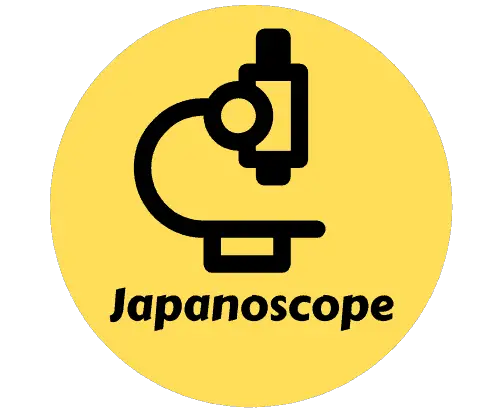
- How To Say No In Japanese
- Using No in Japanese sentences with verbs
- Can you put iie in front of these sentences?
- How to Say “No, I don’t think” in Japanese
- Using No in Japanese sentences with Adjectives
- How to say “No, I don’t like it” in Japanese
- How to Indirectly say no to an invitation in Japanese
- How to indirectly say no to someone’s argument in Japanese
- How to say “No thank you” in Japanese
- How to Say “that’s no good” in Japanese
- How to say “no, stop it” in Japanese
- How to say “No Smoking” in Japanese
- No That’s Not It in Japanese
- “No, you can not” in Japanese
- No Problem in Japanese
- How to say “No” Forcefully in Japanese
- How to say “Oh No” in Japanese
How To Say No In Japanese
The most direct translation of the English word “No” is “いいえ” iie.
いいえ iie
But, in contrast to the English word “no” which is a common part of everyday language, the word iie isn’t used much in Japanese.
It might seem strange that such a fundamental word isn’t used in a language, but it’s not that people in Japan just say “yes” to everything, it’s just that the way of saying “no” is different in every situation in Japan.
Kind of annoying if you are learning Japanese as a foreign learner, right?
But don’t worry, it’s not that complex really.
Usually saying no in Japanese is achieved by just using a negative form of what has been said, or asked, to you.
So, for example, if someone said, “are you going to eat that?”, in English you might reply simply “no, I’m not”. In Japanese, rather than using a word that directly means “no”, you would say something that means “I’m not going to eat that”.
So, this example looks like this:
それ、食べる?
sore, taberu?
Are you going to eat that?
食べない。
tabenai.
no, I’m not
Using No in Japanese sentences with verbs
You can use the pattern above with all kinds of verbs in Japanese.
Basically, when someone asks you about doing something in Japanese, you usually reply with the same verb with a negative ending in a form that is like “I don’t do that” in English.
So the basic structure for negating verbs in Japanese is:
Verb stem + nai
In its simplest form (which is actually quite common in Japan) it sounds like:
行く?
Are you going?
行かない。
Ikanai
No, I’m not.
Here are some more examples of “No” In Japanese with various verbs:
ぺんある?
penn aru?
Have you got a pen?
ごめん、ないです。
gomen, nai desu.
No, sorry.
アフリカに行ったことありますか?
afurika ni itta koto arimasuka?
Have you ever been to Africa?
行ったことないです。
itta kotonaidesu.
No, I’ve never been.
チェスが出来る?
chesu ga dekiru?
Can you play chess?
出来ないね。
dekinai ne.
No, I can’t.
今日はテニスする?
kyou wa tenisu suru?
Will you play tennis today?
今日はしない。
Kyou wa shinai.
No, I won’t.
Can you put iie in front of these sentences?

Yes, it is quite common for people to put いいえiie in front of sentences where they are saying “I won’t” or “I can’t”.
ジョンさんは毎日運動しますか。
jyon san wa mainichi unndou shimasuka?
Do you exercise every day, John?
いいえ、しません。
Iie, shimasen
No, I don’t.
Overall, you can see that this sentence structure is actually quite similar to English.
Handy, right?
How to Say “No, I don’t think” in Japanese
The most common way to say “No, I don’t think” in Japanese is:
verb stem + nai + to omou (informal) or omoimasu (more formal)
これから値段が上がると思いますか。
korekara nedan ga agaru to omoimasu ka.
Do you think the prices will go up?
いいえ、上がらないと思います。
iie, agaranai to omoimasu.
No, I don’t think they will.
Alternatively, you can use the word “think” 思う omou in its negative form as 思わない omowanai or 思いません omoimasen, but this tends to emphasize the fact that you, as a personal opinion, do not think.
So, in the above example, you would be more likely to use this form to negate what someone else had just said, to assert your opinion:
これから値段が上がると思いますか。
korekara nedan ga agaru to omoimasu ka.
Do you think the prices will go up?
上ると思います。
Agaru to omoimasu.
I think they will.
私は上がると思いません。
Watashi ha agaru to omoimasen.
I do not think they will go up.
Using No in Japanese sentences with Adjectives
Negating adjectives is similar to negate verbs.
Now, Japanese is a little complicated by the fact that it has i adjectives and na adjectives. The i adjectives are the ones that end in a i sound such as takai expensive, yasui cheap, ookii big, chiisai small.
The na adjectives are all the other ones like kantan simple, fukuzatsu complex, shizuka quiet, benri convenient.
The form looks like:
i Adjective Stem + ku + nai
na Adjective Stem + jya (less formal) or dewa (more formal) + nai
Once again, in its simplest form it is like this for an i adjective:
暑いね。
Atsui ne.
It’s hot, isn’t it?
熱くないよ。
Atsukunai yo.
No, it’s not.
or for a na adjective, it looks like this:
簡単でしょう?
Kantan desyou?
Simple, right?
簡単じゃないよ!
Kantan jyanai yo!
It’s not simple!
Here are some more examples:
この車は高いですか。
kono kuruma wa takai desuka?
Is this car expensive?
高くないです。
Takakunai desu.
No, it’s not.
その店の料理は美味しいですか。
sono mise no ryōri wa oishii desu ka.
Does the food at that restaurant taste good?
美味しくないです。
oishikunai desu.
No, it doesn’t.
あそこの図書館は静かですか。
asoko no toshokan wa shizuka desu ka.
Is that library quiet?
いいえ、静かではないです。
iie, shizuka de wa nai desu.
No, it’s not.
その本は複雑ですか。
sono hon wa fukuzatsu desu ka.
Is that book complex?
複雑ではないです。
fukuzatsu de wa nai desu.
No, it’s not.
How to say “No, I don’t like it” in Japanese

The most basic way to say you don’t like something in Japanese is:
好きじゃない
suki janai
I don’t like
甘いものは好きですか。
amai mono wa suki desu ka.
Do you like sweets?
好きじゃないです。
suki janai desu.
No, I don’t.
How to Indirectly say no to an invitation in Japanese
Japanese people are famous for being indirect in their expression (although, they can conversely be very direct when talking about things like personal appearances).
So, one way to decline an invitation is to just say that something is “a bit…” and then trail off, leaving the explanation unsaid.
For example:
明日映画見に行かない?
ashita eiga mi ni ikanai?
Do you want to go and see a movie tomorrow?
明日はちょっと。
ashita wa chotto.
Sorry, I can’t.
In Japan, giving reasons for not doing things is actually a lot less common, or expected, than in the West. Even in the example above, where you are declining an invitation to go to a movie, in the West, it would generally be considered a little rude or “short” to just say “sorry, I can’t”. At the very least, you would probably say something like “Sorry, I’ve got something on tomorrow”. This is not as expected in Japan, and people often decline things with an ambiguous “tomorrow’s a bit…”
Wait around to find out what tomorrow is a bit of, and you will be waiting until your hair turns gray.
How to indirectly say no to someone’s argument in Japanese
Another ambiguous word you hear a lot in Japan when people want to say “no” is かな kana, which means “to wonder”.
So if someone says they love a movie, and you hated the movie, a conversation could go:
あの映画は最高でしょう。
ano eiga wa saikō deshō.
That movie is the best, right?
そうかな。
Sou kana.
I don’t know about that.
How to say “No thank you” in Japanese

To say “no thank you” in Japanese, you usually say something that like “I’m good”, or “I’m fine”, rather than directly saying “no thank you”.
How to say “No thank you” politely in Japanese
A polite way to say no in Japanese is as:
結構です。
kekkou desu.
I’m fine.
For example:
お茶いかがですか。
ocha ikaga desuka.
Would you like some tea?
結構です。
kekkou desu.
I’m fine, thank you.
It is actually quite uncommon for people to say “I’m fine” and then put “thank you” after it, as we almost always do in English. It is possible, though, to say:
結構です。ありがとう。
kekkou desu. arigatou.
I’m fine, thank you.
How to say “No thank you” casually in Japanese
To say “no thank you” in a more casual way, you can say:
いいです。
iidesu.
I’m good.
For example:
今日学校に連れていきましょうか。
kyō gakkō ni tsureteikimashō ka.
Shall I take you to school today?
いいです。
Ii desu.
I’m good, thanks.
大丈夫です。
Daijyobu desu.
I’m okay.
テレビ見る?
Terebi miru?
Do you want to watch TV?
大丈夫。
Daijyobu.
No, I’m okay.
I’ve also written a whole page about saying “okay” in Japanese here.
How to Say “that’s no good” in Japanese
Another useful word for saying “no, I can’t do something” in Japanese is だめ dame
dame enables you to say that you don’t want to, or can’t do something as if things are beyond your control. This means you can be less direct about turning someone down or telling someone “no”.
So for example, if someone asked you if you wanted to do something Tuesday:
火曜日になにかする?
kayōbi ni nanika suru?
Do you want to do something Tuesday?
You could answer
火曜日はだめです。
kayōbi wa dame desu.
Tuesday is no good.
I go more in-depth into using dame in Japanese here.
How to say “no, stop it” in Japanese
There are a variety of ways to say “no, stop it” or “stop that” in Japanese. I’ve got a whole post about how to say stop in Japanese.
Some of these phrases for saying “No, stop it” in Japanese have actually become quite well known outside of Japan amongst people who are into Japanese anime and media. Phrases in this category, which I have written about in the past include:
How to say “No Smoking” in Japanese
“No smoking” in Japan is said as 禁煙 kinen.
この部屋は禁煙です。
kono heya wa kinen desu.
This is a no-smoking room.
No That’s Not It in Japanese
Another word you often hear people using to negate things in Japan is:
違う chigau.
This word literally means “different”, but it is often used as a way of saying no or negating something.
Example:
これはジョンさんのカバンですか。
kore wa jyon san no kaban desuka
Is this John’s bag?
違います。
Chigaimasu.
No, it’s not.
“No, you can not” in Japanese
A common way to say “cannot” in Japanese is to say いけない ikenai or ikemasen .
Example:
サッカーでは手を使ってもいいですか。
sakka- de wa te o tsukatte mo ii desu ka.
Can you use your hands in soccer?
いいえ、サッカーでは手を使ってはいけません。
iie, sakka- de wa te o tsukatte waikemasen.
No, you can’t use your hands in soccer.
No Problem in Japanese
The most direct translation of the English phrase “no problem” is 問題ない mondai nai.
Of course, this is a massive simplification, and there are actually a lot of ways to say “no problem” in Japanese, which I’ve written about in the past.
How to say “No” Forcefully in Japanese

To get across a short, sharp “No!” in Japanese you can say いや iya!
一緒に帰らない?
issho ni kaeranai?
Do you want to go home with me?
いや!変なこと言わないでよ。
iya! henna koto iwanaide yo.
No, don’t be weird.
iya いや can also mean you don’t like something.
How to say “Oh No” in Japanese

There are a few words you hear Japanese people saying when they make a whoopsy.
These include:
Oh no/Oops
しまった
shimatta
Example:
しまった!財布を忘れた!
shimatta! saifu o wasureta!
Oh no, I forgot my wallet!
やばい
Yabai
Oh-oh/oh no
For example:
やばい、反対方向の車線に入ってしまった。
yabai, hantai hōkō no shasen ni haitteshimatta.
Damn it, I’m in the lane going the other direction.
Learning how to say no in Japanese can, conversely, open doors for you. It has many benefits including the ability to assert yourself and gain respect and authority. There are different ways to say no in Japanese and you need to choose the most appropriate one for your needs.
In Japan, saying “no” politely without offending someone is a delicate situation. While it may seem like a simple word, the Japanese culture can be heavily influenced by how things are said and done. Saying “no” to somebody that you don’t know well could potentially end up making them feel bad or insulted.
Hopefully, this guide has equipped you to say a solid, nuanced “no” in Japanese – in a range of situations.
